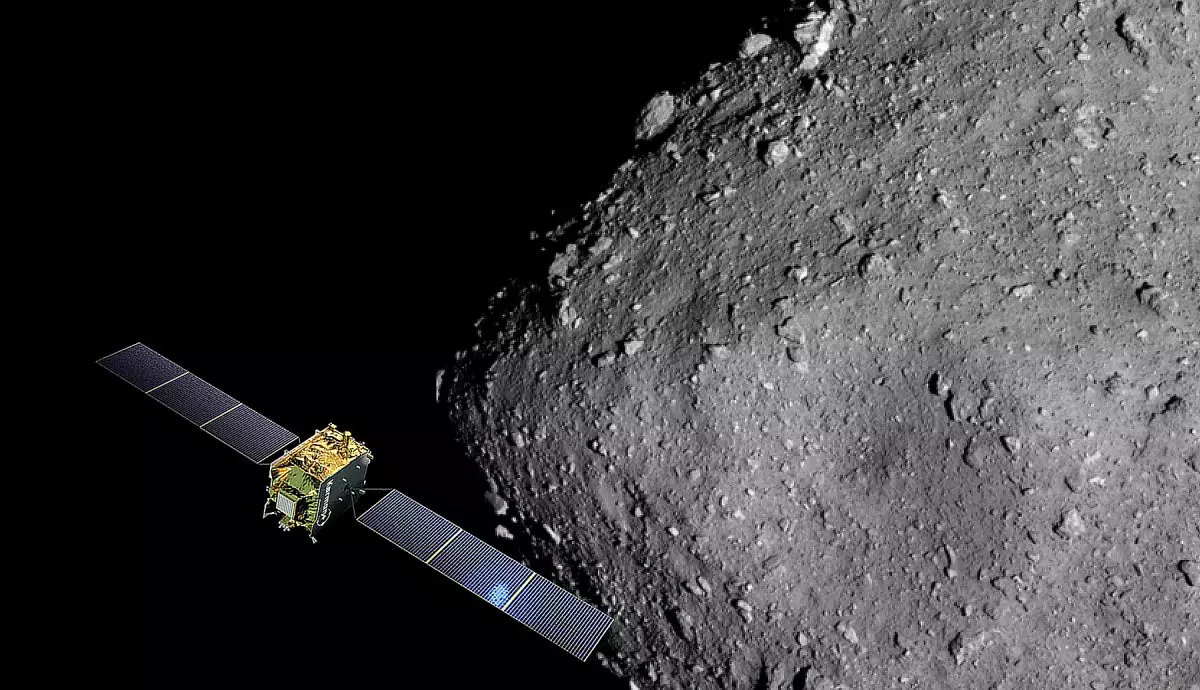As humanity continuously reaches for the stars, the frontier of space seems less like a distant dream and more like an attainable adventure of profitability and innovation. In a remarkable move, the startup Karman+ has successfully captured the attention of investors by embarking on a daring mission: to build autonomous spacecraft capable of traveling to asteroids, mining them for materials, and creating an ecosystem that could potentially transform space exploration. Karman+, which recently raised $20 million in seed funding, is on a clear trajectory to unlock unprecedented opportunities in the realm of space travel and resource acquisition.
The ambition of Karman+ stands out not merely for its exhilarating goals but also for its radical departure from conventional space missions, which have often been burdened by astronomical costs—both figuratively and literally. Past asteroid exploration missions have sometimes exceeded $1 billion in expenses, but Karman+ claims it can achieve similar objectives for a fraction of that price, estimating mission costs at $10 million or less. This bold assertion positions the startup not just as a player in the field, but as a potential disruptor of an otherwise stagnant market that has seen few innovations in cost efficiencies.
Karman+ aims to develop spacecraft that can travel vast distances—potentially millions of miles—to capture resources from asteroids, including water from regolith. The water could then fuel space tugs and rejuvenate aging satellites in orbit, creating a self-sustaining cycle that could redefine how we view space logistics. This vision, while ambitious, underscores a deeper truth: the power of technology, particularly in autonomous systems and off-the-shelf components, could pave the way for more accessible and resourceful space exploration.
A Unique Vision with Historical Roots
Founded by Teun van den Dries and Daynan Crull, Karman+ draws its name from the Karman Line, a delineation that signifies the boundary of space. This name is emblematic of the startup’s ethos—a commitment to pushing the boundaries of what is possible. Van den Dries, who has transitioned from a successful SaaS entrepreneur to the CEO of Karman+, brings with him a wealth of knowledge in data and technology. His partnership with Crull, a data scientist and the mission architect, signifies a deliberate blend of entrepreneurial vision and technical expertise that is essential for tackling challenges inherent to space exploration.
The founders’ drive stemmed from a desire to venture into an under-invested yet promising area of technology. The allure of asteroid mining is amplified by its resource efficiency; unlike lunar missions or those requiring launches from Earth, asteroids exist in a more favorable orbital position. By integrating resources from asteroids into the broader ecosystem of space industry, Karman+ hopes to revolutionize how we gather and utilize materials beyond our atmosphere.
Challenges and Skepticism as Stepping Stones
The journey to asteroid mining is fraught with various challenges that Karman+ must navigate. First and foremost is the technical hurdle: the spacecraft design, construction, and testing must meet rigorous standards. The challenge becomes even more daunting when considering the dynamic nature of the asteroids themselves, which orbit the sun and can be unpredictable in their paths.
Moreover, while Karman+ aims to leverage mining to refuel satellites, it’s worth noting that satellite technology is diverse and not all satellites operate on hydrogen and oxygen as propellants. Some rely on alternative energy sources like solar power or batteries, thus complicating the business model for potential clients.
Financial sustainability poses another critical challenge. While Karman+ has successfully secured initial investments, future milestones will certainly require further funding to transition from concept to operational spacecraft. This necessity to continually reassess financial needs stands as a significant aspect of the entrepreneurial journey in the highly speculative field of space operations.
Despite these challenges, the market potential for Karman+ appears promising. The startup’s leaders envision a multi-billion dollar market not just in asteroid mining but also in services to sustain existing infrastructure in space. Their vision of creating a broader ecosystem stretches beyond simple extraction and focuses on establishing a sustainable infrastructure capable of supporting various space missions.
The investment landscape around Karman+ showcases the shifting attitudes toward risky ventures in aerospace. Investors like Plural and Hummingbird are willing to engage with this ambitious endeavor, influenced by the founders’ pragmatic approach. Sten Tamkivi, a partner at Plural, expressed confidence in Karman+’s realistic planning, highlighting a stark contrast to the often-optimistic views seen in software startups where development risks are frequently overlooked.
The bold aspirations of Karman+ represent not just an exploration of rock and mineral kingpins in the cosmos but also a reflection of humanity’s desire to innovate boldly while expanding the frontiers of technology. If successful, Karman+ could lead the charge into a new era of resource utilization that combines imagination with practical solutions. As they prepare for their inaugural launch in 2027, the ambitious team on this space venture reminds us that the sky is not the limit—it’s merely the beginning of a much larger exploration.

